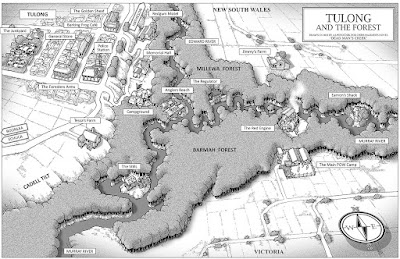I managed to get my reading mojo back in 2023 and have enjoyed a wonderful year of books. I also spent a week at the Sydney Writers' Festival which introduced me to many new books and authors.
My reading goal for 2023 was 30 books, which I achieved, reading 33 titles this year. When planning for 2023 at the start of the year, I had a stack of books on my to-be-read pile, and managed to read most of them. I also updated my reading bingo card to help me diversify my reading. While I didn't read all categories, I succeeded in most of them (highlighted below).I also read some crime/thriller novels by non-Australian authors. I pre-ordered the latest Robert Galbraith (JK Rowling) novel in the Cormoran Strike series, The Running Grave. It was such an enjoyable read and my favourite in the series so far. Dervla McTiernan is another gifted crime writer and I was delighted to learn about her Cormac Reilly series through reading The Ruin. I pre-ordered Eleanor Catton's novel Birnam Wood and was delighted to get to meet her at the Sydney Writers' Festival. This novel had me gripped from the outset and lingered long after the last page was read. Likewise Percival Everett's magnificent The Trees has not left my mind. I heard about this novel when it was shortlisted for the 2022 Booker Prize, but had difficulty finding a copy. I am so glad to have read this and look forward to exploring more books by Percival Everett.
- Eleanor Catton - Birnam Wood
- Coleson Whitehead - The Nickel Boys
- Hayley Scrivinor - Dirt Town
- Percival Everett - The Trees
- Robert Galbraith - The Running Grave
I read so many great books this year. I loved and highly recommend:
- Anna Funder - Wifedom
- Britney Spears - The Woman in Me
- George Orwell - Nineteen Eighty-Four
- Winifred Watson - Miss Pettigrew Lives for a Day
- Sarah Holland Batt - The Jaguar
- Hayley Scrivinor - Dirt Town
- Chris Hammer - The Seven
- Percival Everett - The Trees
- Robert Galbraith - The Running Grave
- Eleanor Catton - Birnam Wood
- Coleson Whitehead - The Nickel Boys





































